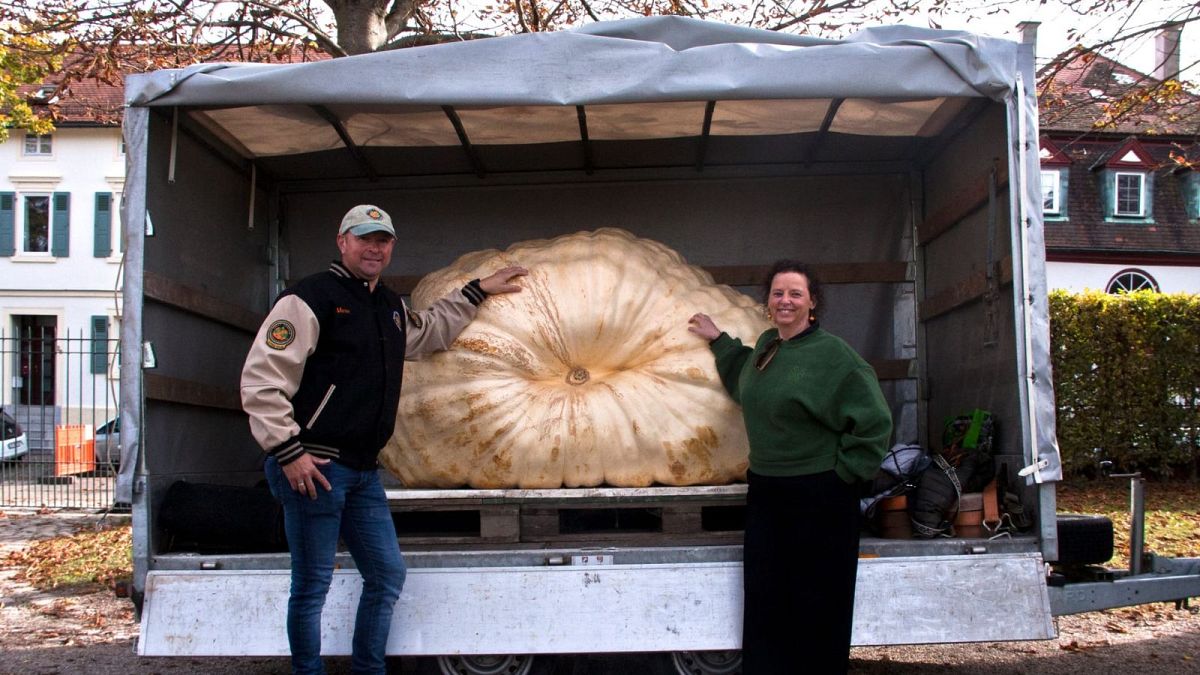Voters in Moldova decide on EU membership in crucial referendum

Polls put support for EU membership in Moldova at around 60%, but a minimum turnout of 33% is needed for the referendum to be considered valid.
Polls have opened across Moldova with voters making two crucial decisions: who should be their next president, and whether the country should join the European Union.
Wherever they sit on the political spectrum, most Moldovans want higher wages and a better quality of life — but opinion is split on whether joining the EU will provide the bright future that supporters of the idea are promising.
Some are sceptical that membership will deliver change, while others prefer to maintain a cordial relationship with Russia.
“Nothing good,” said one man in the capital Chișinău when asked by Euronews what his expectations were.
“When in all these years they’ve been doing nothing. And the roads are completely deteriorated. I have not seen anybody doing a well so far, neither the current ones [politcians] nor the others. I don’t see any hope for the future,” he said.
But others think that EU membership will improve living standards and raise wages, something that’s prompted many young people to leave the country in search of better salaries elsewhere.
“I think these elections go hand in hand because I will of course choose the European path and in voting for a certain president I will address issues. I think it is important to see the future of our country, to see where we are heading, and if our citizens are all on same page,” said another voter.
An end to stagnation?
The current minimum wage in Moldova is set at 5,000 leu (€261) a month, one of the lowest in Europe.
A recent analysis by the independent think tank Idis Viitorul showed that more than 200,000 Moldovans had left the country in the last four years, a record number.
The data also show that more than 40% of Moldovans living abroad are between 30 and 44 years old — and it’s expected that by 2030, the number of Moldovans born abroad will be higher than those born in the country.
“For us it’s crucial, it’s historic momentum. And it’s not only about the ability of the citizens to mobilise and take a very clear stance about our future,” said Iulian Groza, the executive director at the Institute for European Policies and Reforms.
“The choice is clear: either Moldova adheres and continues to advance towards the West, towards accession to the European Union, or it is being dragged by Russian proxies back into the hands of Russian influence.”
Polls put Moldovans’ support for EU membership at around 60%.
Moldova’s incumbent president Maia Sandu, who is running for re-election, has been a staunch advocate for EU membership and at a campaign event on Thursday, urged voters to support accession.
“For about 20 years we have been talking about Moldova in the European Union and we are very close now and it is very, very important not to miss this opportunity,” she said.
Moldova was granted EU candidate status in 2022.
The spectre of interference
A turnout of 33% is needed for the referendum to be considered valid, meaning that many Russian-backed campaigns have focused on demobilising voters.
Earlier this month, Moldovan authorities warned that some €14 million in Russian funds had been funnelled directly into the accounts of 130,000 Moldovans in a bid to buy their anti-EU votes.
Pro-Russian oligarch Ilan Shor, known for spearheading the Kremlin’s covert operations in Moldova, has also publicly offered money for votes against EU integration.
Chișinău estimates that Russia has spent as much as €100 million in total to undermine the electoral process, including through coordinated disinformation campaigns designed to sway or suppress the vote.
Earlier this week, Moldova’s Prime Minister Dorin Recean advised voters to remain vigilant.
“Lately, destabilisation attempts by criminal groups, controlled from outside, have intensified,” he said.
“It is up to you, dear citizens, to stop the attack on democracy. On Sunday you make the choice: do we go back to the past, alone, without resources for development, vulnerable to challenges, or do we go into the future, into the family of civilised countries?”
The Central Election Commission said people will be able to cast their ballot at 2,221 polling stations – 1,957 are located across Moldova, with 234 in other countries for Moldovan citizens voting abroad.
World News || Latest News || U.S. News
Source link



